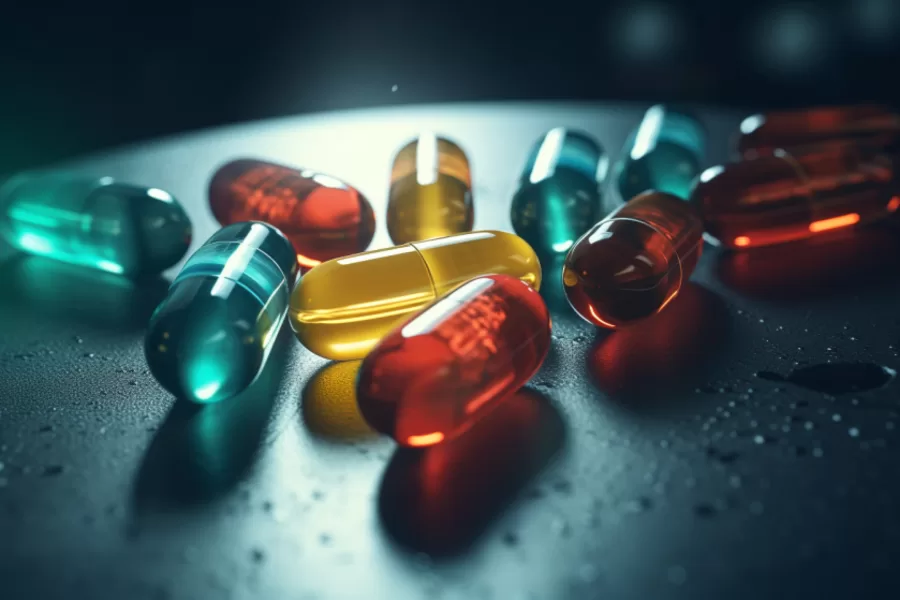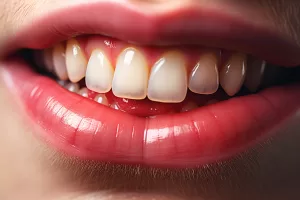The appearance of antibiotics revolutionized modern medicine. These medications combat harmful bacterial infections effectively and save the lives of many people. Nevertheless, this strong means against pathogens has its own consequences. Antibiotics are aimed not only at harmful bacteria but likewise disturb the fragile ecosystem of the gut microbiota, which performs a crucial role in maintaining digestive health.
When a large number of useful bacteria in our gut are depleted, the consequences for our overall well-being become obvious. Let’s go deeper into the complicated interconnection between antibiotics and digestive health and explore the potential consequences of taking antibiotics.
Impact of Antibiotics on Digestive Health
Antibiotics have become pretty useful in medicine since they are able to save lives by combating bacterial infections. Still, these powerful medications may likewise have unforeseen consequences on our digestive health. One of the major effects of antibiotics is their impact on the fragile balance of our gut microbiota.
As known, human gut microbiota comprises trillions of bacteria that are of decisive importance for digestion, immune function, and overall well-being. But when antibiotics are taken, they aim and kill both harmful and useful bacteria, disturbing this complicated ecosystem. This disturbance may result in immediate consequences, in particular, diarrhea, bloating, and digestive discomfort.
Long-term effects
Antibiotics are medications that bring lots of benefits to human health. Nevertheless, their long-term use may have unforeseen consequences on our digestive health. When antibiotics target harmful bacteria, they likewise disturb the fragile balance of our gut microbiota. This disturbance may result in a condition known as dysbiosis, where the diversity and quantity of useful bacteria decline, making our digestive system more receptive to infections and other health problems. Moreover, prolonged antibiotic use may promote the development of antibiotic-resistant bacteria, further worsening our gut health.
Mitigating the Impact of Antibiotics
At the time noted rising concerns over antibiotic resistance, it is significant to concentrate on mitigating the impact of antibiotics. To reach this, a few strategies may be realized. First of all, promoting reasonable antibiotic use is essential. This includes informing healthcare professionals and the general public about the proper use of antibiotics, highlighting the significance of completing prescribed courses, and hindering self-medication.
Moreover, developing alternative treatment options, in particular, phage therapy and antimicrobial peptides may assist in reducing reliance on antibiotics. Fortification of surveillance systems to monitor antibiotic resistance patterns and the introduction of reliable infection prevention and control measures are likewise crucial. If individuals take proactive measures, they will be able to preserve the effectiveness of antibiotics and defend public health for future generations.
Prudent use of antibiotics
There is a necessity to be aware of the importance of taking antibiotics reasonably. Antibiotics are strong tools that are able to save lives. But their overuse may result in serious consequences. To keep the effectiveness of antibiotics, there is a need to stick to a prudent approach.
Take antibiotics only when prescribed by a healthcare provider and strictly adhere to the prescribed dosage and duration. Avoid sharing antibiotics with your family members or friends. Keep in mind that by taking antibiotics responsibly, you will be able to defend yourself and future generations from the growing threat of antibiotic resistance.
Role of probiotics
The role of probiotics in restoring gut health after antibiotic use is of decisive importance. Although antibiotics are effective in treating infections, they may likewise disturb the balance of useful bacteria in the gut. Probiotics are live microorganisms that may assist in replenishing and restoring this balance. They operate by contributing to the growth of healthy bacteria, improving digestion, and reinforcing the immune system. By taking probiotic supplements or consuming probiotic-rich foods, you will be able to support your gut health and minimize the side effects of antibiotics on the digestive system.
Dietary modifications
If you want to support gut health, you may consider making dietary modifications. For instance, you may increase your fiber intake by including fruits, vegetables, whole grains, and legumes in your meals. Also, it is recommended to consume probiotic-rich foods, in particular, yogurt and kefir, to contribute to a healthy balance of gut bacteria. It is a good idea to limit processed foods, sugary drinks, and artificial sweeteners since they may disturb gut flora. Remember to stay hydrated and drink plenty of water throughout the day.
Antibiotics and Gut Dysbiosis
Despite being useful, antibiotics may result in a condition called gut dysbiosis. Gut dysbiosis is an imbalance or disturbance in the composition and diversity of the microbial community located in the gastrointestinal tract. Gut dysbiosis is connected with different health problems, in particular, digestive issues, immune dysfunction, and even mental health disorders.
How antibiotics can lead to gut dysbiosis
Although antibiotics are effective in fighting bacterial infections, they may likewise disturb the fragile balance of the gut microbiota, resulting in gut dysbiosis. Antibiotics are medications that are aimed at harmful bacteria but may likewise affect useful microbes necessary for digestion and overall health.
Prolonged or excessive antibiotic use may lead to decreased diversity of gut bacteria, letting opportunistic pathogens thrive. This imbalance may result in digestive problems, disturbance of immune function, and potential long-term health consequences. Proper antibiotic management and strategies to support gut health are crucial to reducing the risk of gut dysbiosis.
Digestive disorders
The role of gut dysbiosis in digestive disorders, such as IBS, IBD, and others, cannot be underestimated. Gut dysbiosis represents an imbalance in the gut microbiota, resulting in a disturbance of normal digestive functions. In conditions such as irritable bowel syndrome (IBS) and inflammatory bowel disease (IBD), this imbalance may make worse symptoms and promote disease progression.
Dysbiosis may disturb the integrity of the intestinal barrier, cause inflammation, and change gut motility. Comprehension and elimination of gut dysbiosis with the aid of interventions, in particular, probiotics and dietary alterations, may have promising potential for treating these complicated digestive disorders.
Summary
To sum up, antibiotics perform a crucial role in treating bacterial infections, but they may likewise have significant impacts on digestive health. Although antibiotics are usually necessary, it is of decisive importance to use them reasonably and take steps to support gut health during and after antibiotic treatment. Understanding antibiotic seriousness and taking proactive measures may assist in minimizing potential disturbance to digestive well-being.
FAQ
Do antibiotics affect digestive system?
Yes, antibiotics may affect the digestive system. Aside from treating bacterial infections, antibiotics may likewise disturb the natural balance of bacteria in the gastrointestinal tract, resulting in a range of digestive problems.
Do antibiotics affect your gut health?
Yes, antibiotics may affect your gut health.
How do I keep my gut healthy while on antibiotics?
To keep your gut healthy while on antibiotics, it is advisable to take probiotics, stick to a balanced diet, stay hydrated, consume fermented foods that are rich in probiotics, and take antibiotics as prescribed.
How long does it take for your gut to heal after antibiotics?
The time it takes for your gut to heal after taking antibiotics may vary depending on a few factors, in particular, the type and duration of antibiotic treatment, your general state of health, and the specific effects of the antibiotics on the gut microbiota.




